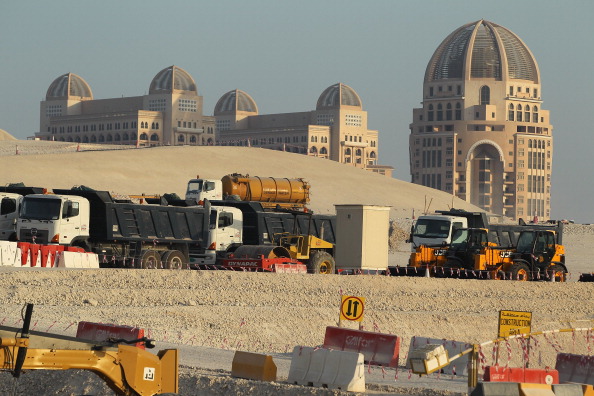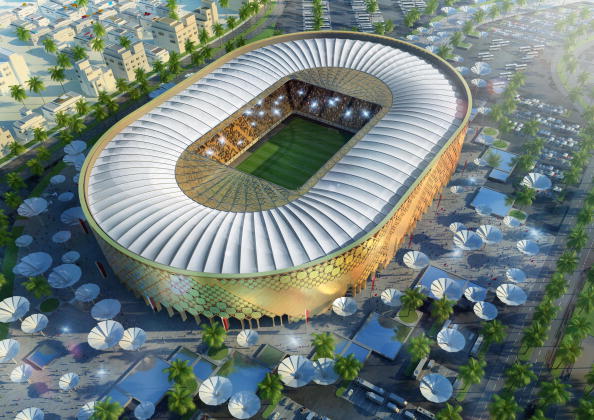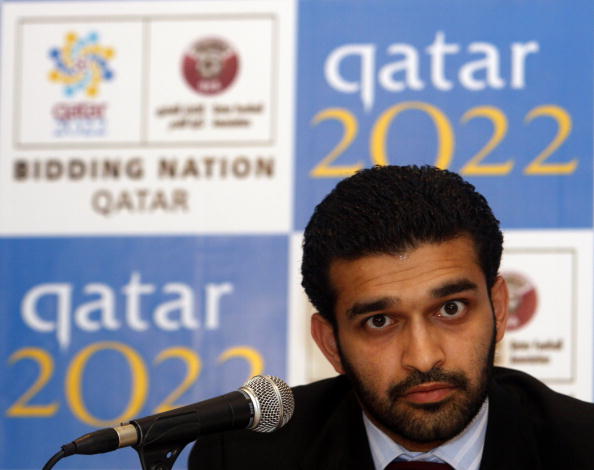By Andrew Warshaw in Doha
December 14 – It is just over two years since that momentous December day when Qatar stunned the footballing world by winning the race to stage the 2022 World Cup by a landslide.
At virtually every turn since, Hassan Al-Thawadi and his campaign team have had to cope with negative reporting about the methods used by the tiny Gulf state to achieve one of the most jaw-dropping results in the history of sports event bidding.
But if you think Al-Thawadi – the razor sharp, fast-talking English and American-educated lawyer who was, and still is, the public face of Qatar 2022 as he dashes round the world – is allowing all the whispers of suspicion, dirt digging and unproven allegations of corruption to halt Qatar’s focus in its tracks, think again.
Sitting in his spotlessly clean yet surprisingly sparse office on the 37th floor of the downtown Doha building that houses both the burgeoning numbers of recruited 2022 World Cup staff and the Qatar Football Federation, Al-Thawadi concedes the criticism has been painful.
Qatar may have spent big to get their message across and made mistakes along the way.
But never having been proved to break any FIFA rules, Al-Thawadi (pictured below, right, with the Qatar 2022 bid ambassador Zinedine Zidane, left) remains bemused by the scale of the backlash and the number of misconceptions.

“When is the negative side going to end? I don’t know,” Al-Thawadi admits as he opens up to insideworldfootball.
“There is no doubt the hurt is always going to be there.
“I welcome constructive criticism because, guess what, nobody’s perfect.
“South Africa in 2010 was a great success on so many levels yet wasn’t perfect.
“But if it’s not constructive criticism all you can do is look at the glass as half full.
“I am learning about the school of hard knocks but all I am interested now is the future.”
FIFA general secretary Jérôme Valcke’s infamous leaked email suggesting last year that Qatar bought the World Cup set the balling rolling in terms of raising obvious questions over the bidding process and hardly helped the tiny Gulf state’s cause.
Valcke’s untimely comments were construed in different ways, however, with many seasoned observers reasoning that what he actually meant was that Qatar’s huge marketing spend gave it a natural advantage over other 2022 contenders.

“You can look at virtually anything and draw inferences,” Al-Thawadi responds.
“It’s like the parody where six blind men are walking round an elephant and are asked to describe it.
“The point is, we know what we are doing and nothing will stop us.
“We have to keep our eyes on the ball.
“The minute we don’t, people will say we can’t deliver.”
Despite the continuing picking away at Qatar’s methodology by its critics, Al-Thawadi is determined to leave all the ill-feeling and negativity behind, however many times in the next few years his nation-building vision might take a hit.
Whether he likes it or not, however, the heat issue is unlikely to just disappear.
Amid the growing clamour to switch the World Cup to the winter months, Al-Thawadi explains his personal thinking.
“Look, it’s very simple.
“We bid as a summer World Cup with cooling technology, (But) if the pillars of the football community come back to us and tell us winter or otherwise …then we will listen.
“But make no mistake, the cooling technology is a legacy concept.
“It opens up two thirds of the world to being able to enjoy their summers.
“Right now, the plan is still to hold the tournament in summer.”
While the searing desert heat remains the main focus of the opposition camp, size comes a close second.
The furthest distance between stadiums at 2022 is likely to be around 70 kms but Al-Thawadi doesn’t see that as an issue either (pictured below The Qatar University Stadium).

Just as the Olympics stages 26 sports in one city so, he argues, Qatar – half the size of Wales – will cope with millions of fans pouring into the country and snaking their way to the 12 stadiums, nine of which are being built from scratch starting in 2014.
He is not alone among key administrators in dismissing smallness as a problem.
Sebastian Coe, the public face of London 2012, told this week’s inaugural Doha Goals conference – aimed at using sport as a tool for positive change – that size did not necessarily matter and was certainly not an argument for knocking Qatar’s success.
“It’s a new concept, a bit like the Olympics but the feel will be football,” explains Al-Thawadi.
“Fans will feel safe, they will feel secure, they will feel comfortable.
“They will also have a lot of fun, they will not only be physically cool; they will be cool in every sense.”
Read the second part of Andrew Warshaw’s interview with Hassan Al-Thawadi on Monday (December 17).

